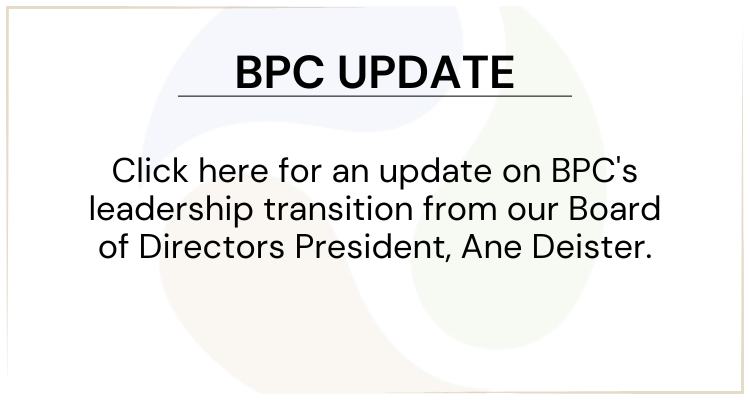
Bay Planning Coalition’s Expert Briefing: Earthquake Risk & Goods Movement in the Bay Area, held this Tuesday at San Francisco International Airport, featured several key experts from the region’s infrastructure community and a revealing discussion about how goods movement and transportation will be affected following a major earthquake.
Click here to see the agenda for the event and links to each of the speakers’ slides.
Click here to hear the KCBS report on the event, which includes an interview with BPC CEO John Coleman.
The good news? Our ports, airports, regional agencies and engineers are thinking about our region’s earthquake risk and earthquake recovery. A lot. Just last week, Larry Mares from San Francisco International Airport explained, SFO held a disaster drill that involved many of the procedures that will need to be implemented following a large earthquake. It has lockers throughout the premises that hold emergency supplies and has plans in place for housing workers and stranded passengers. It is also in the process of overhauling—and even rebuilding—many of its facilities to make them more earthquake safe.
Desmond DeMoss from the Port of Oakland said that his organization is taking similar measures. BART has engaged in a retrofit program that has drastically reduced the amount of time that it will take to restore service. Michael Germeraad from the Association of Bay Area Governments (ABAG) reported that BART will now be able to restore 85% of its service after a major earthquake within just a few days. Utility companies are doing a lot of planning as well. Germeraad mentioned how BPC member East Bay Municipal Utility District is a leader in this planning; even working closely with the City of Berkeley to develop protocols and recovery strategies.
More and more meetings are being held between various government agencies at all levels and infrastructure stakeholders to discuss earthquakes and what will need to be done to respond to them. Along these lines, ABAG is in the process of creating a new Bay Area Regional Lifelines Council, an initial goal of which will be to address water reliability after an earthquake. “There are a lot of intersections of responsibilities” among stakeholders after an earthquake, Germeraad said.
The bad news? Even if infrastructure does get up and running relatively quickly after an earthquake, a lot of major questions remain; both practical and regulatory in nature. Justin Fox from AECOM explained that there are enough “class one” rail lines coming in and out of the region—four to be exact—that it is unlikely that all of them will be majorly damaged in even a fairly large earthquake. But what isn’t clear is how freight and passenger rail needs would be balanced.
Scot Ferrell from Marsh Risk Consulting discussed how many companies are without an effective strategy for business continuity following an earthquake. Who will talk to the press, coordinate evaluation and repair of facilities, and who is and is not required to report to work following a disaster are all questions that need to be answered before businesses and, accordingly, the regional economy can recover.
DeMoss talked about how the Port of Oakland may be able to serve as an effective distribution site for supplies following a major earthquake, as well as a landing point for people fleeing San Francisco by ferry. But what if its facilities are affected by liquefaction? Or if there just isn’t enough room at Jack London Square for all of the people arriving by ferry? Or their wharfs cannot handle the weight of the sheer amount of emergency supplies that are needed? Much of this is unclear. State, FEMA, CPUC and Coast Guard regulations, among others, would all come into play. Both San Francisco International Airport and Oakland International Airport are subject to strict federal regulations regarding things like security and runway condition and layout that could hamper earthquake recovery efforts and delay them from coming back online even if it is technically safe for them to resume operations. Environmental regulations will be a major concern as well.
The discussion among the panelists and the audience at the briefing highlighted the need for an organization to bring stakeholders together to address regulatory issues like these in more detail. Bay Planning Coalition is in an excellent position to do this and has made it a priority for 2017. If you are interested in participating in related discussions and events, please contact BPC staff.
Tags: CBS, earthquake, expert briefing


